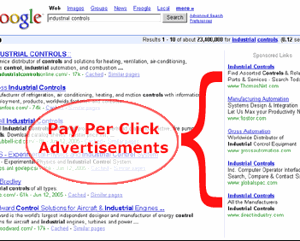 Last time I checked, Spyfu.com is reporting that someone is bidding $51.66 per click for phrase “conference calling companies.” Are you bidding on words like this, which is one of the most expensive keyword phrases? Let’s take a look at the most expensive pay-per-click keywords and what you can do to reduce your overall PPC costs.
Last time I checked, Spyfu.com is reporting that someone is bidding $51.66 per click for phrase “conference calling companies.” Are you bidding on words like this, which is one of the most expensive keyword phrases? Let’s take a look at the most expensive pay-per-click keywords and what you can do to reduce your overall PPC costs.
If you are in a niche that includes “conference calling,” lawyers, insurance, loans, or mortgages, there is a good chance that the keyword prices (what companies are willing to pay per click, what they’re bidding per click and what they’re paying per click) gets pretty expensive. At last check, the “cheapest” of the top 100 most expensive phrases is $43.75 per click. And at those costs, it pays to make sure that you are providing your users the optimal web experience when they come to your web site via those expensive keywords.
Let’s take a look at some of the top 100 most expensive keyword phrases:
Expensive keyword phrases; cost per click
- conference calling companies $51.66
- purchase structured settlements $51.48
- home owner secured loan $50.36
- mesothelioma patient $50.23
- austin texas dwi lawyer $50.03
- phoenix dui lawyers $50.01
- insurance auto $50.00
- secured loans $50.00
- phoenix dui attorney $50.00
- car free insurance online quote $49.96
Even if you are not paying $50 a click for a visitor to your website, you need to realize that you are charged for every click. So it pays to make sure that you provide the optimal experience but also convert as many of those visitors as possible. There are several things you can do right now to make every click count.
First, take a look at your web analytics. Make sure that you have the proper conversion tracking in place so that you know exactly which phrases are converting into a lead, a sale, or however else you track a conversion. For example, when someone clicks on your pay-per-click ad, what do you expect the visitor to do? Do you want them to look at your website, add something their shopping cart and purchase something? If that is the case, then perhaps you would set up your web analytics goals so you can track which keywords are driving the most sales. If you have this list, then you can compare that list with the keywords you are bidding on and consider dropping the bids on keyword phrases that bring visitors but do not bring in sales. If your goal is to have a visitor fill out a lead form then that also could be a goal, then put a price on each lead (how much is each lead worth to you?) and start tracking the keywords that are bringing in leads.
An audit of your web analytics should reveal the keyword phrases that are most valuable to you, the phrases that are bringing in conversions. Once you are able to determine this, compare the list with the bid prices and compare that list with your list of negative keywords. Consider adding keywords to your negative keyword list if they do not convert into sales or leads for you.
Consider taking your keyword list of your best performing keywords and testing them on a 2nd tier pay-per-click search engine. (See related article, “2nd Tier Search Engines – Are They Worth It?” Determine which keywords are performing (bringing in sales or leads) and which keywords are not performing. After all, some keywords do better on Yahoo! or Google and some perform better on the 2nd tier search engines. You must test each one by setting up the proper analytics.
It’s all about the bottom line. If you have a good handle on your web analytics and which keywords are converting, then raising your bid prices (even on the 2nd tier search engines) on the keywords that are converting should not be a tough task. Take a look at your “average sale” or the value you have put on each sales lead. How many of those pay-per-click visitors convert into a sale or a lead? How many “clicks” does it take to make a sale or to get a lead? If the numbers work out, then consider raising your bid prices. You just might find yourself bidding on one of the top 100 most expensive keyword phrases.




